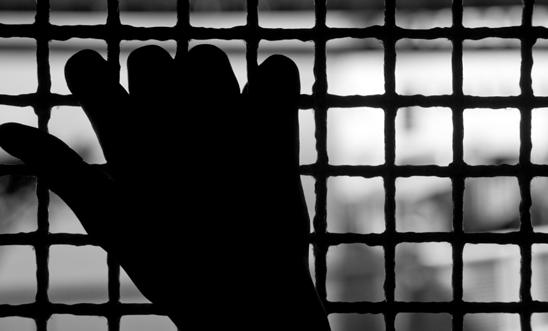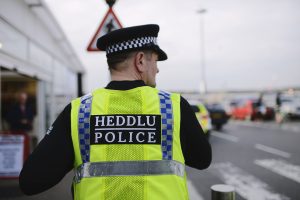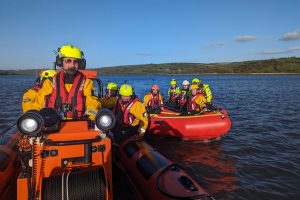 AS PART of Dyfed-Powys Police’s commitment to Anti-Slavery Week (Oct 17-21), officers are conducting activity aimed at raising awareness to break down the traditional views of slavery, and individuals who may be exploiting workers. They will also be offering support to victims, and reinforcing the fact that Wales is hostile to perpetrators of Modern Slavery.
AS PART of Dyfed-Powys Police’s commitment to Anti-Slavery Week (Oct 17-21), officers are conducting activity aimed at raising awareness to break down the traditional views of slavery, and individuals who may be exploiting workers. They will also be offering support to victims, and reinforcing the fact that Wales is hostile to perpetrators of Modern Slavery.
Each day will focus on various themes, and officers will educate businesses and organisations on understanding their role and responsibility in tackling Modern Slavery and Human Trafficking.
Chief Inspector Ross Evans said: “This week our officers will be conducting a number of visits to locations across the force area to ensure that we identify potential victims of forced labour, and where appropriate take steps to ensure their safety and prosecuting offenders. Forced labour is very often over-looked in terms of modern slavery, it can take years for victims to either disclose their abuse or break away from abusers.
“We will ensure that employers are aware that people must be employed legally, employees are treated with respect and care and are not being exploited. Officers have been trained to identify the warning signs of those who are most vulnerable but we need our communities to be our eyes and ears. We cannot rely upon victims to come forward and report abuse, because many will be unaware of their abuse and the crime remains hidden in plain sight. There is a social responsibility upon us all to do all we can to protect vulnerable people. During this week officers will be out in communities speaking to residents, business owners, and people working at our ports about modern day slavery and explaining what to look out for and how people can help us to stop this exploitation taking place.”
He added: “The campaign is designed to support those affected and highlight that there is confidential and professional support to encourage people to come forward to ensure they are safe from harm – and ultimately prosecute offenders. Each individual case is a personal tragedy for those involved. Being aware of slavery will help us to rescue more survivors and bring to justice their perpetrators.”
Spotting the signs and indicators of slavery
This list is not exhaustive:
- Having no personal identification or passport/documents and held by someone else.
- Lack of money/no control over own finances or lack of access to earnings.
- Living/sleeping in the place of work or in cramped, unsanitary conditions
- Evidence of control of movement either as an individual or group.
- Limited contact with family and limited social contact.
- Others seeking to speak for the person you are trying to engage with.
- Children not in education.
- Children living with non-relevant families.
- Signs of branding/ownership.
- Signs of physical abuse / mental anguish
- Injuries as a result of assault or ill treatment
- Lack of access to medical care.
- Extreme reaction to authority (fear, shying away, overly suggestive)
- Lifestyles they cannot afford, for example a new mobile telephone, clothes, money
Say ‘no’ to slavery, if you see it, report it!
If urgent call the Police on 999, if non-urgent call 101, or contact Crimestoppers anonymously on 0800 555111. You can also contact the Modern Slavery Helpline on 08000 121700, or visit www.wales.gov.uk/anti-slavery
















Add Comment